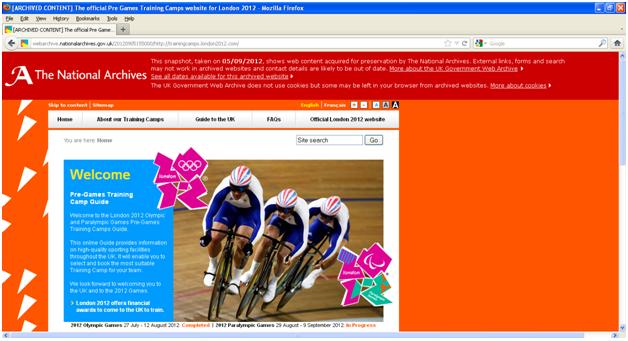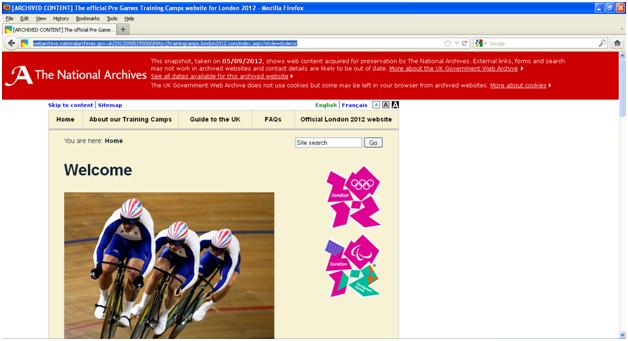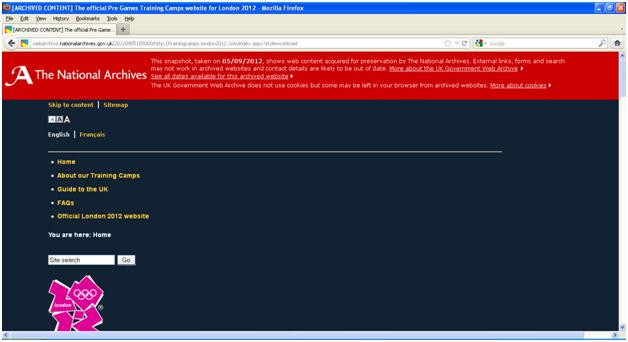Last week was Diversity Week at The National Archives – a week in which we celebrate the diversity of our collections. This made me think about how the UK Government Web Archive is capturing ways that the UK Central Government web estate is being used to communicate with one minority group – disabled people. In writing this post I am aware that the term ‘disabled people’ encompasses a wide range of very different people with many different needs. I will only be able to focus on a few specific examples in this short post.
The web teams responsible for UK government websites work to ensure that sites are as accessible as possible. Guidance about designing accessible websites is provided in the Cabinet Office (formerly Central Office of Information) Web standards and guidelines on delivering inclusive websites. Additionally, most websites in scope for our web archive include a page describing provisions made to ensure the website is accessible. We will have captured these pages as part of our regular archiving schedule. For example, the page below in an archived version of the Directgov website from December 2008 describes the accessibility features of the site.
Interestingly, the page includes two audio files. In my opinion, one of the great benefits of the internet is the ability to communicate information to users in different ways. Whereas in the past a blind or partially-sighted person would have had to source specialist material, such as a leaflet printed in Braille or an audio book, they can now use inexpensive and commonly available technology such as a screen reader or changing the text size in a browser to access most information on the internet. This is made easier by careful website design.
Any provisions made to make websites more accessible will normally be captured as part of the web archiving process. This has dual benefits within the web archive. Firstly, the archived website will be as accessible to disabled users as the original site, and secondly, the way in which the site was made more accessible is captured for long term preservation. Archived versions of the London 2012 Training Camps website provide a good example of this. Users were given the option of viewing the site in three different views. They could choose which view they prefer by simply clicking on the small links in the top right hand corner of each page.
Normal
Dyslexic
High Contrast
The web archive also hosts archived versions of content produced specifically to assist people with disabilities. Some organisations produce ‘easy read’ versions of documents to make documents more accessible to those who may have problems reading standard documents. They are usually primarily aimed at people with learning disabilities. ‘Easy read’ documents feature simplified language and illustrations. Examples of such documents in the web archive include: Easy read summary of the Learning Difficulties Audit – archived from the Healthcare Commission website in December 2008; The Code for Crown Prosecutors – archived from the Crown Prosecution Service website in May 2010 and A National Response to the BBC Panorama programme on Winterbourne View – archived from the website of The National Forum of People with Learning Difficulties in November 2011. I find the latter document particularly interesting as it was compiled by a group of people with learning difficulties in response to something which directly impacted on them.
As I mentioned at the beginning of this post, it would be impossible to cover all the ways UK government websites have been used to increase accessibility to information for disabled people. I hope this short post has provided an overview and perhaps inspired readers to seek out other examples.



